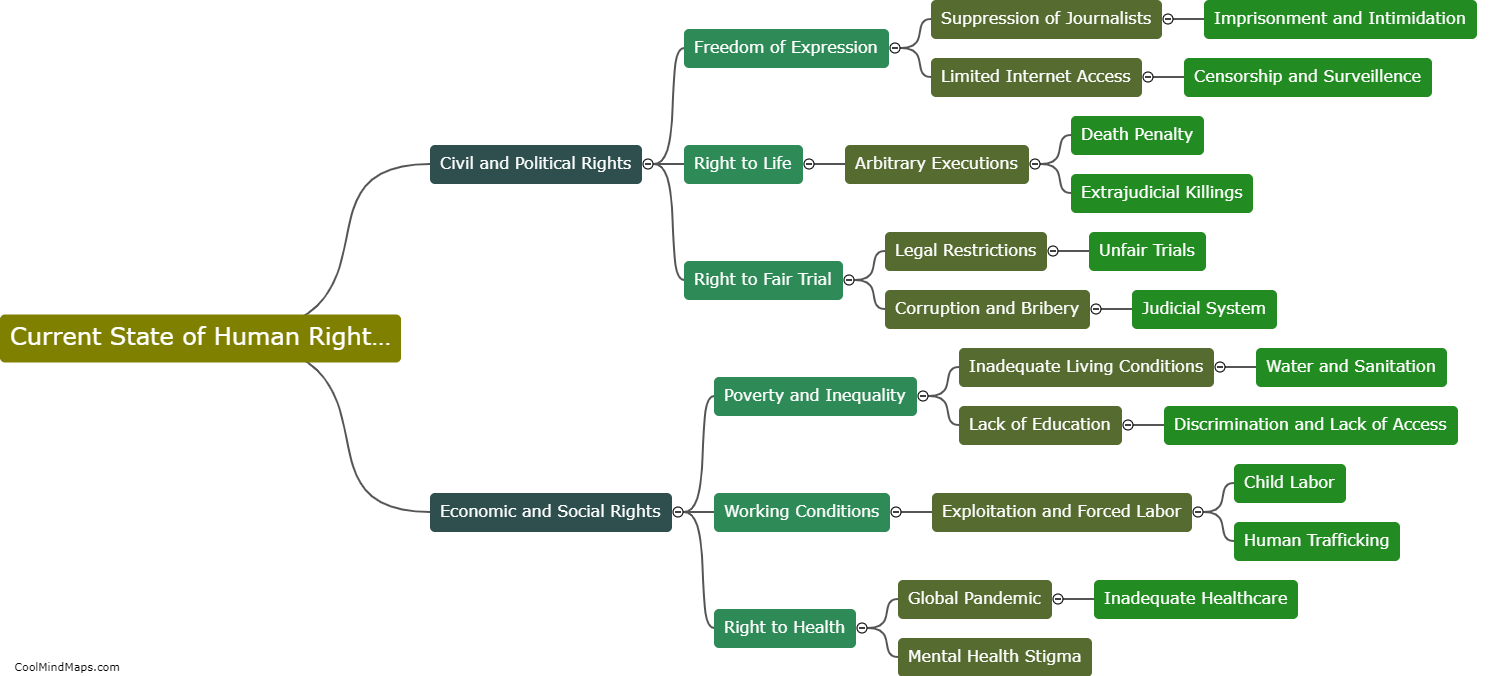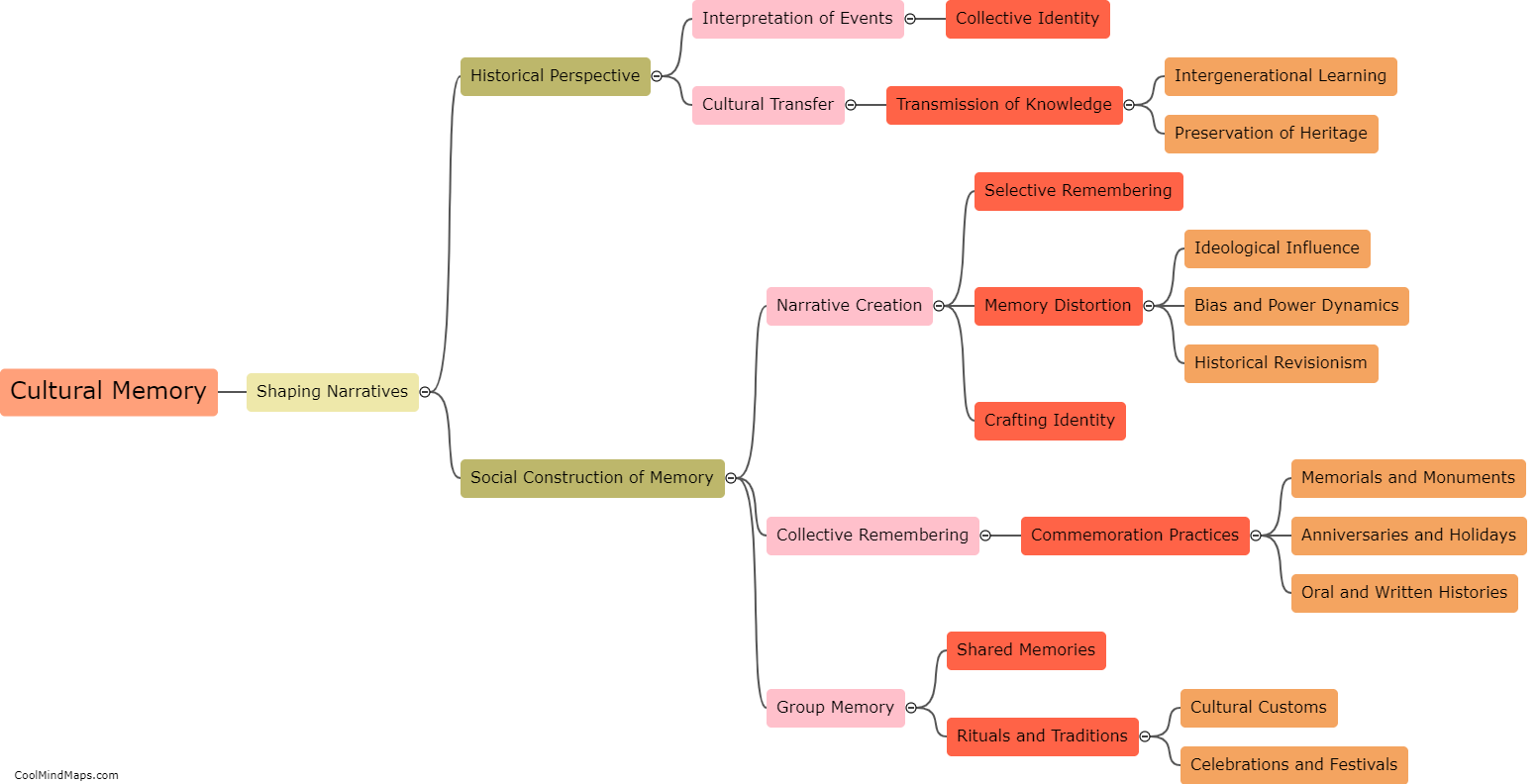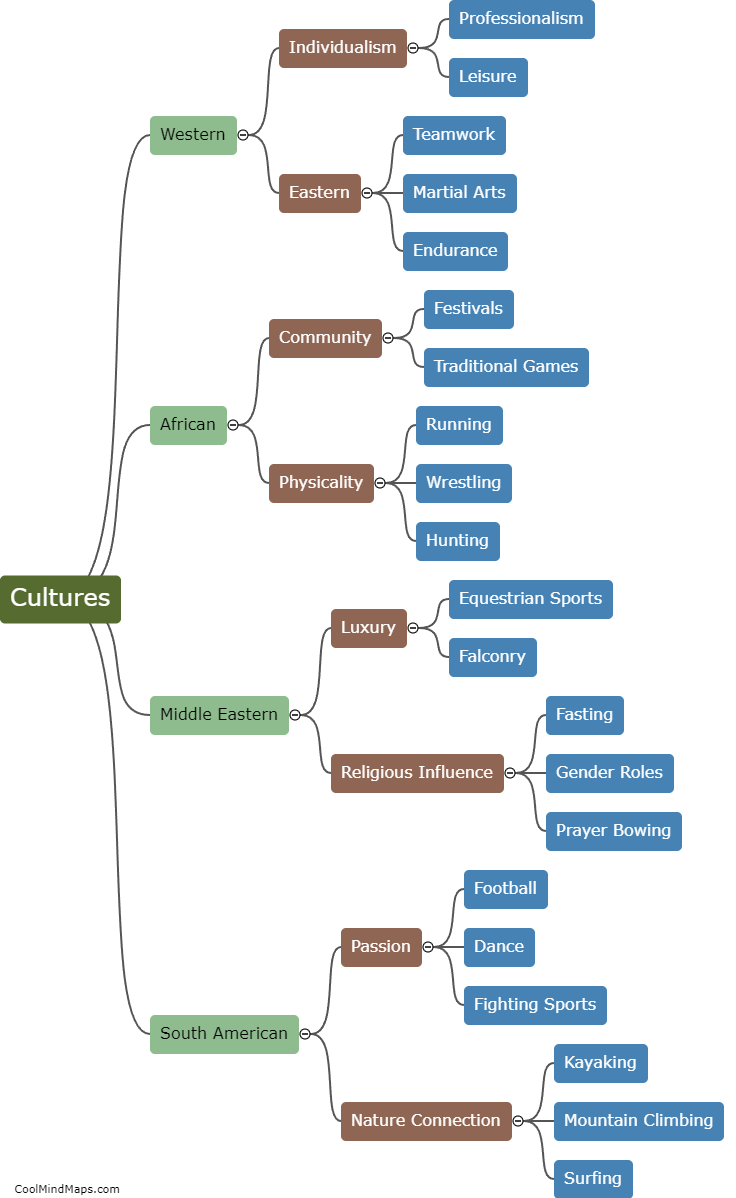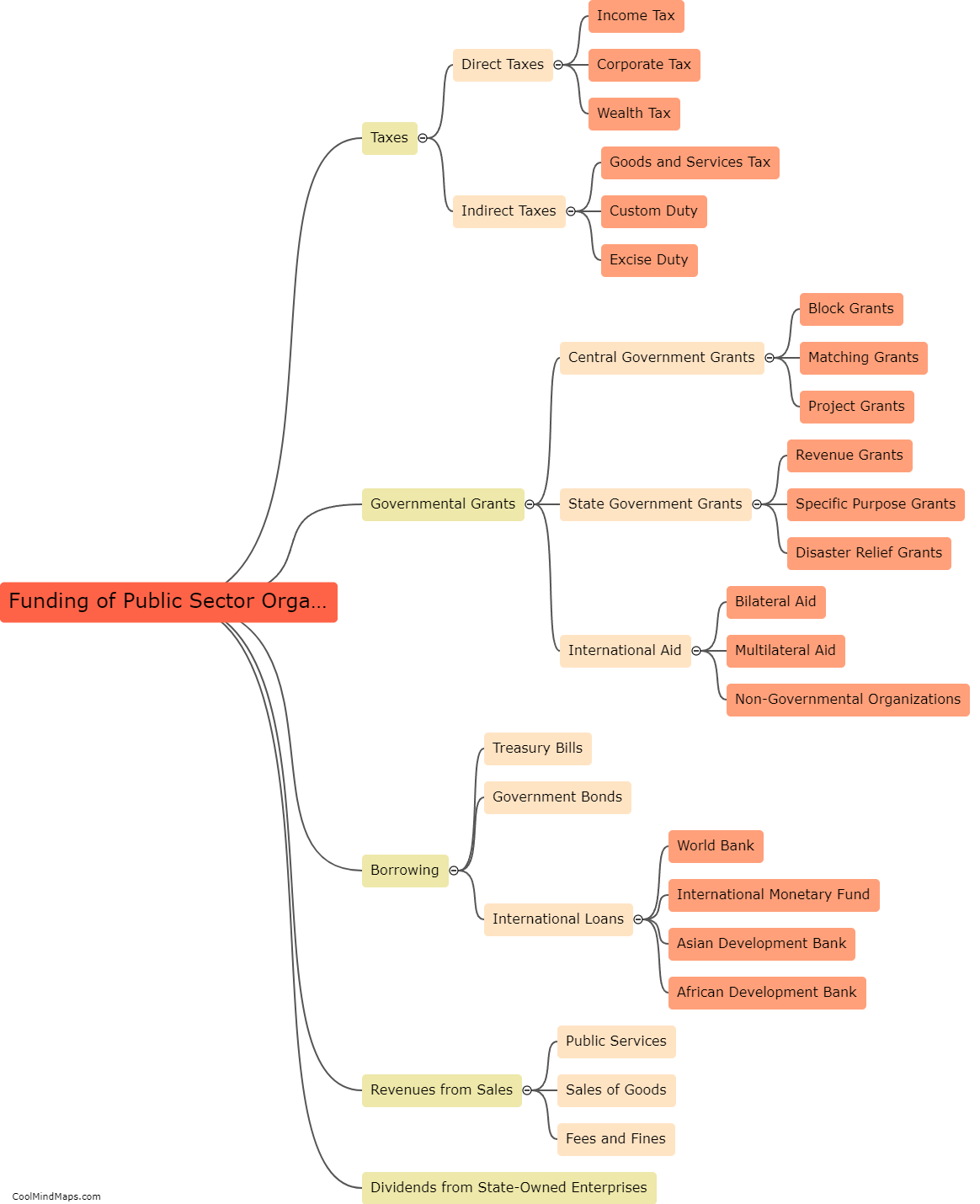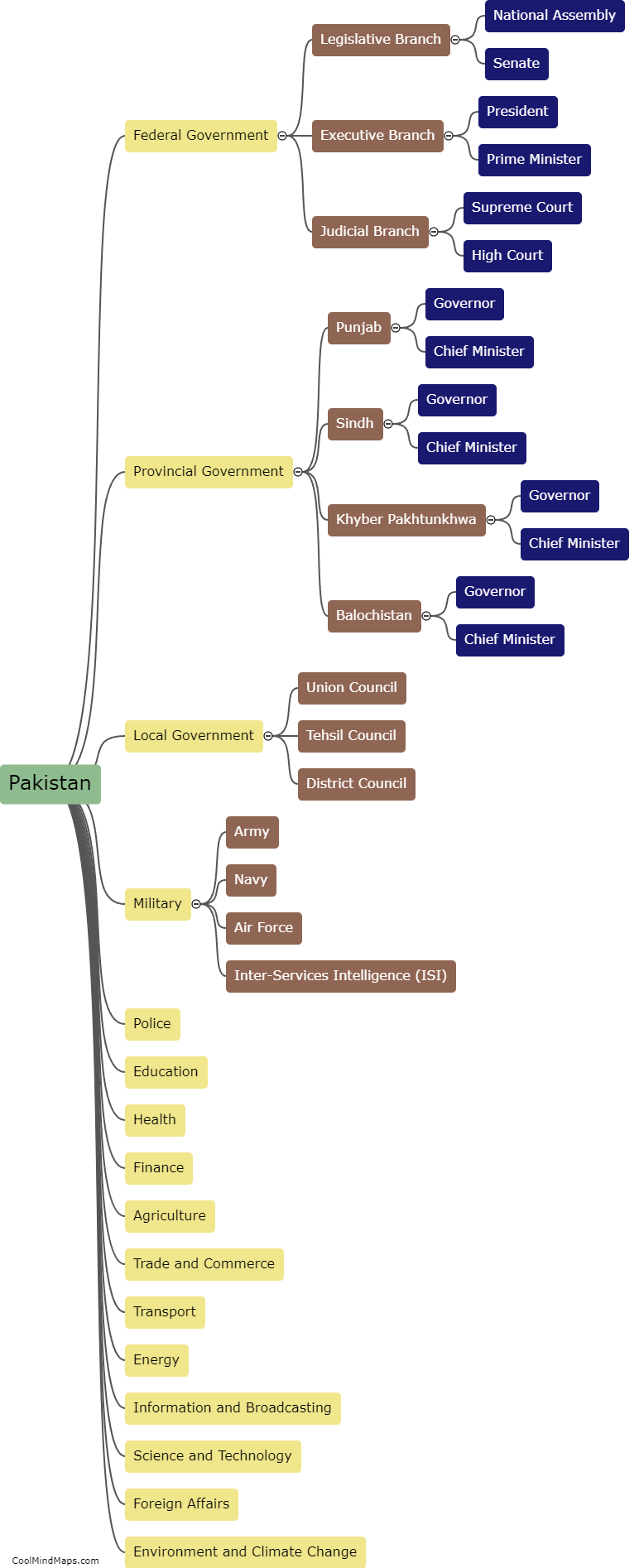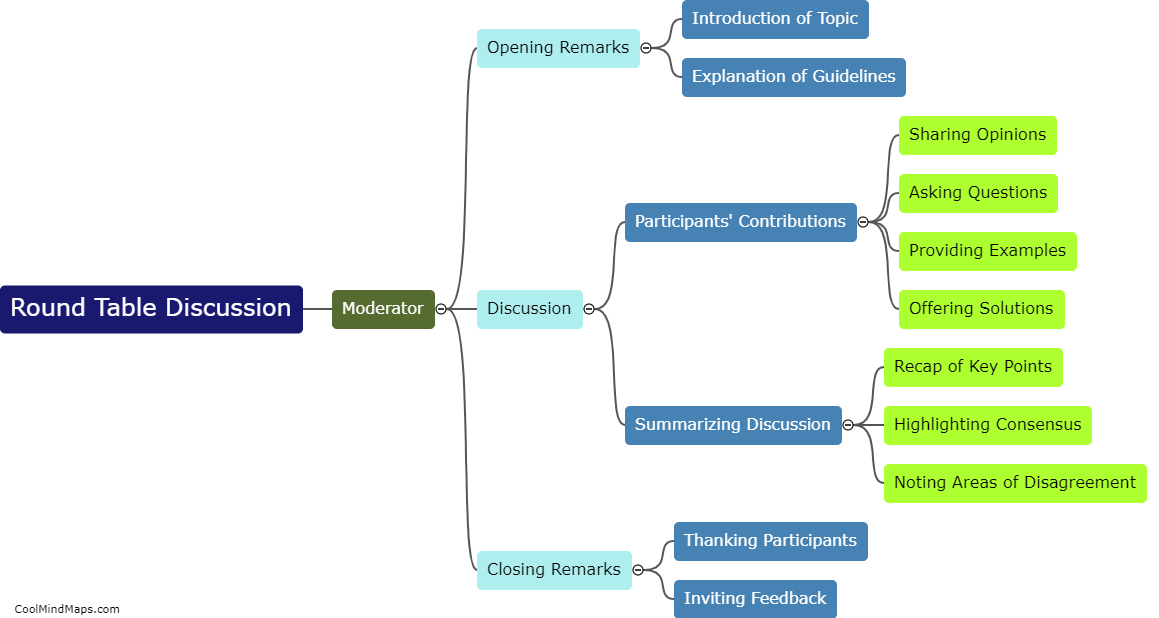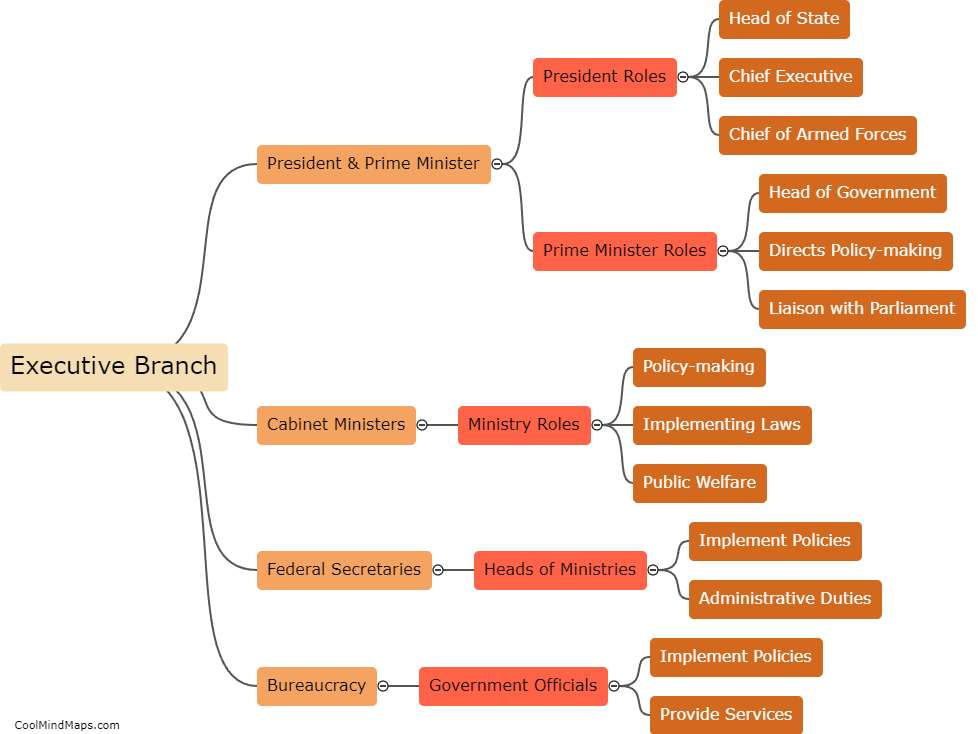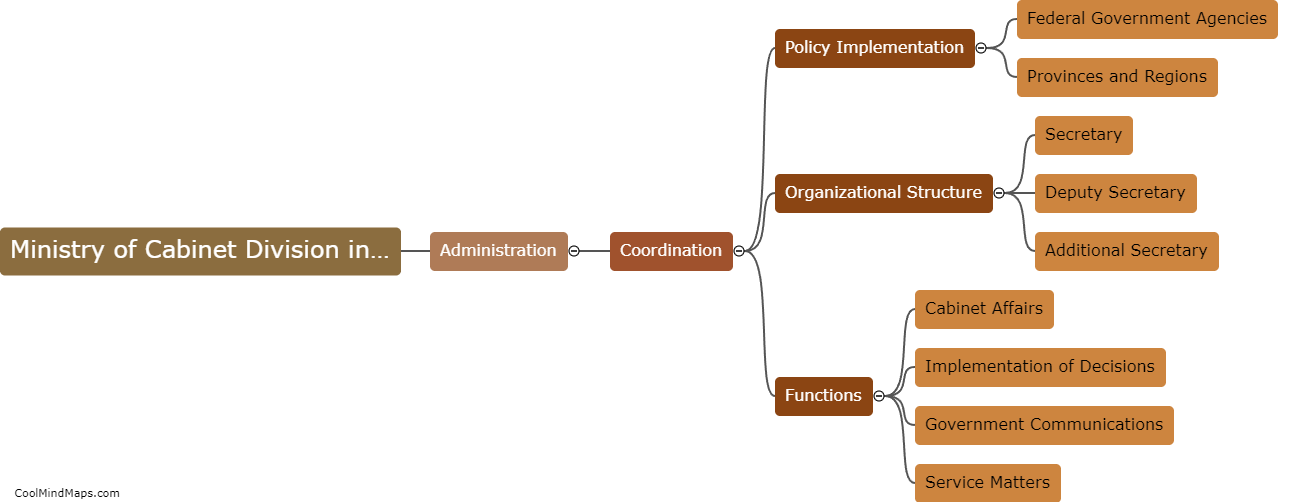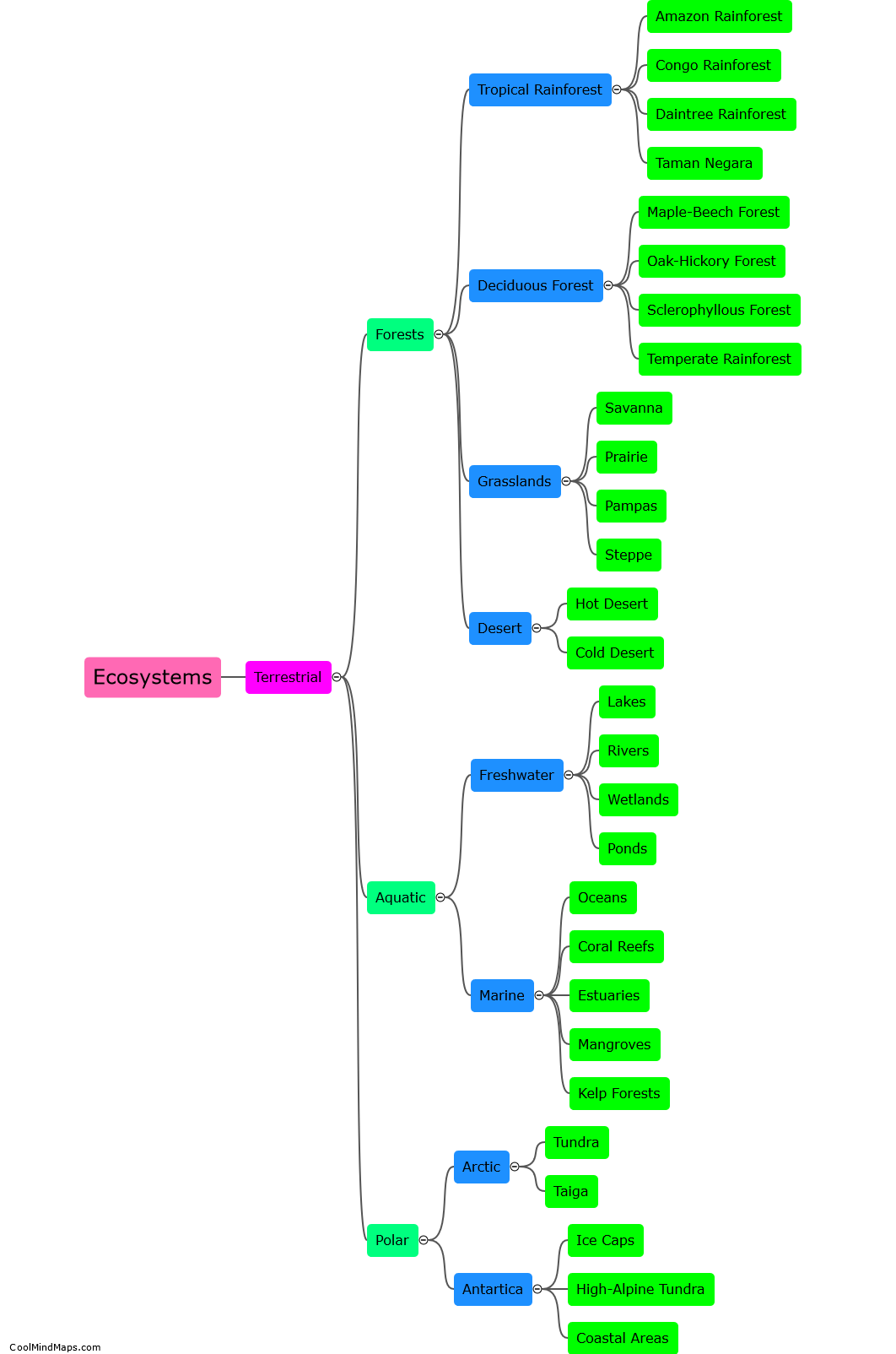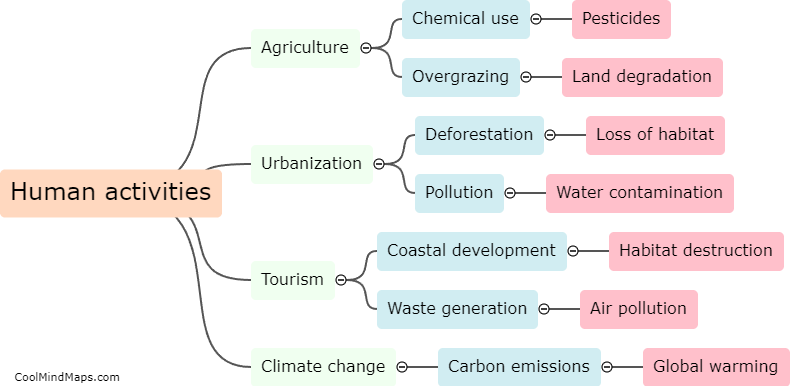What are the powers and responsibilities of the executive branch?
The executive branch of government is responsible for implementing and enforcing laws and policies. It is headed by the President or Prime Minister who has the power to veto or approve legislation, negotiate international treaties, and appoint key officials such as cabinet members, ambassadors, and federal judges. The executive branch also holds the responsibility of overseeing the day-to-day operations of the government, managing the national budget, and representing the country on the world stage. Additionally, the executive branch has the power to issue executive orders, which provide directives for how laws should be implemented, and can also declare states of emergency during times of crisis. Overall, the executive branch plays a crucial role in shaping and guiding the nation's direction.

This mind map was published on 27 November 2023 and has been viewed 125 times.
